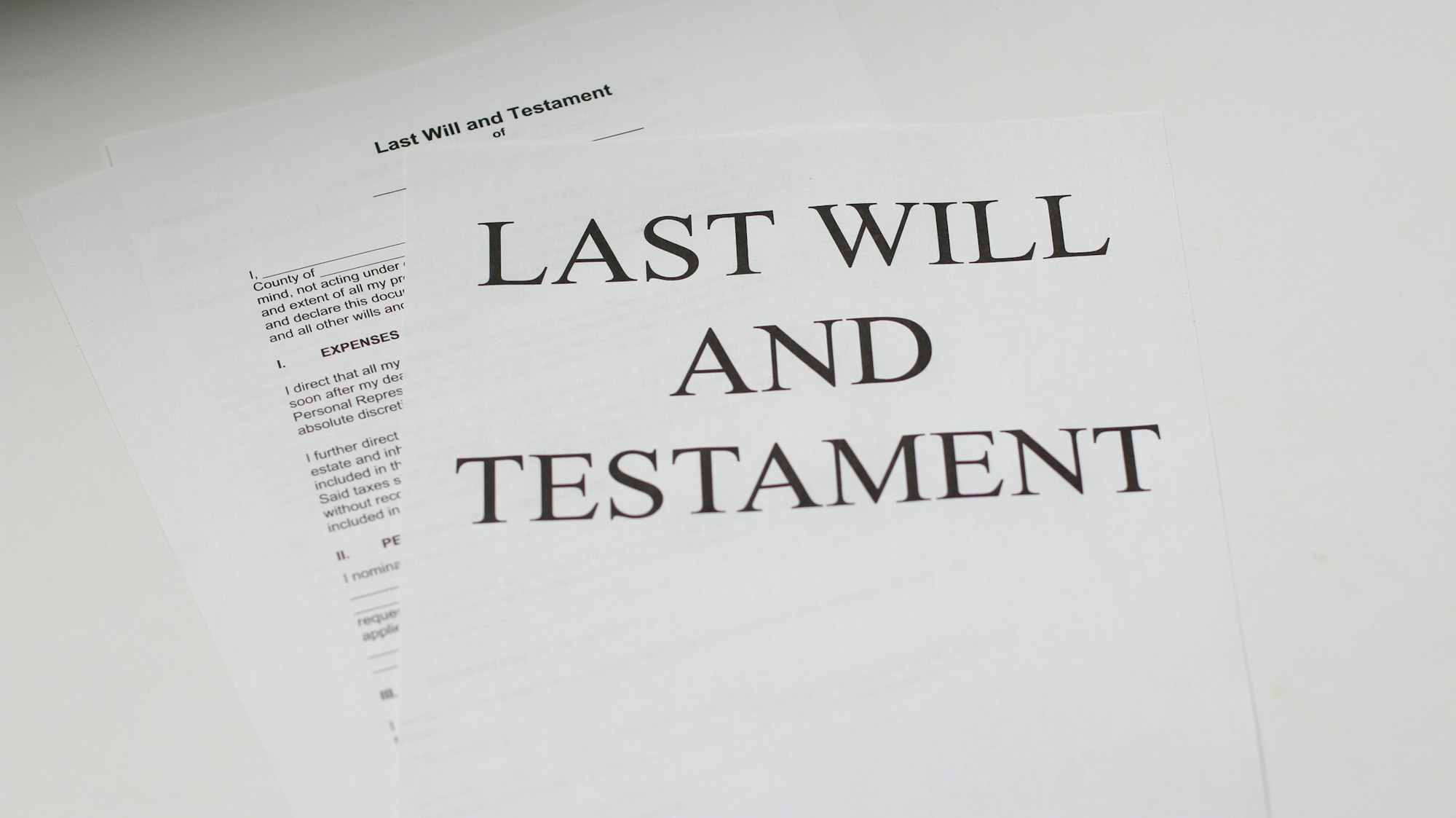Comprehensive Guide to Estate Planning: Ensuring Your Legacy and Protecting Your Loved Ones
Discover the essentials of estate planning with our comprehensive guide. Learn to choose executors, prepare key documents like wills and living trusts, and understand tax implications. Protect your assets and ensure your wishes are honored with this step-by-step checklist for peace of mind.

What is Estate Planning?
Estate planning is a vital process for managing and preserving your assets both during your lifetime and after your death. It involves the organization of an individual's estate in preparation for their eventual demise, ensuring that their wishes are respected and their beneficiaries are taken care of. Here's a detailed guide to the estate planning process, including key concepts and tools:
Understanding Estate Plans and Estate Planning Basics
An estate plan includes various legal documents that outline your wishes regarding the distribution of your assets and your preferences for healthcare if you become incapacitated. It can encompass a range of documents, from wills and living trusts to health care directives and powers of attorney.
What are the Key Components of an Estate Plan?
- Wills and Trusts: These estate planning documents specify how you want your assets distributed after your death. A revocable living trust, for instance, can help avoid the probate process.
- Advance Healthcare Directive and a Living Will: These documents outline your wishes for medical care if you're unable to make decisions yourself.
- Power of Attorney: This gives someone the authority to handle your legal and financial affairs if you're unable to do so.
Tangible and Intangible Assets:
Your estate includes both tangible assets (like real estate and personal property) and intangible assets (such as savings accounts, investments, and insurance policies).

Planning for Tax Implications:
- Estate and Gift Taxes: Understanding how these taxes work is crucial. Estate planning can help minimize the tax imposed on your estate and gifts.
- Inheritance Tax: Some states impose taxes on individuals who inherit property. Proper planning can address these concerns.
Importance for All Family Members:
Estate planning isn't just for the elderly or wealthy. It's crucial for anyone who wants to ensure their family members are taken care of and their wishes are respected.
Common Estate Planning Mistakes:
- Neglecting to update the plan regularly.
- Failing to coordinate beneficiary designations on retirement plans and insurance policies with the estate plan.
- Overlooking the potential need for long-term care and end-of-life care planning.
The Legal Process:
Understanding the whole probate court process and how your estate will be handled legally is essential. This includes knowing how assets are distributed and taxes are paid.
Estate Planning Tools and Documents: Familiarize yourself with common tools other estate planning documents like trusts, wills, advance health care directives, and powers of attorney. Each tool serves a specific purpose and is an integral part of a comprehensive estate plan.
Working with Professionals: Consult with certified financial planners, tax advisors, and legal experts. They can provide valuable advice tailored to your specific financial circumstances and help in creating a complete and effective estate plan.

Estate Planning Checklist: Develop a checklist to ensure all aspects of your estate plan are covered. This should include reviewing and updating your plan regularly, especially after major life events like marriage, divorce, or the birth of a child.
Remember, estate planning is an ongoing process and should be revisited periodically to reflect changes in your life, financial situation, and the law.
The estate planning process is an essential journey for securing your financial legacy and ensuring the well-being of family members. Here's a step-by-step guide to create a comprehensive estate plan, highlighting common estate planning tools, and avoiding typical estate planning costs and mistakes.
Step 1: Inventory of Assets Owned Begin by listing all tangible and intangible assets, including savings bank accounts,, personal property, insurance policies, and jointly owned property. This step is crucial for understanding the full scope of your estate.
Step 2: Create the Plan Decide your beneficiaries, including contingent beneficiaries for unforeseen circumstances. Consider using estate planning tools like revocable living trusts to manage your assets and avoid further probate proceedings. Engaging a certified financial planner or tax professional can provide tailored advice, particularly for complex financial circumstances.
Step 3: Execute the Plan This involves doing estate planning covers signing legal documents and, if necessary, altering ownership of certain assets. For those with minor children, it's essential to designate guardians and make arrangements for their care.
Step 4: Update Regularly An estate plan is an ongoing process. Life changes such as marriage, divorce, or the birth of a child necessitate updates to your plan. Regular reviews ensure your estate plan reflects your current wishes and financial situation.
Creating Your Estate Plan You can opt for DIY estate planning using online resources, consult an estate planning attorney for a more personalized approach, or combine both methods. An attorney is especially beneficial for complex estates or when specific legal knowledge is required.
Essential Estate Planning Documents
- Last Will and Testament: Specifies the distribution of assets and names an executor.
- Living Will/Advance Medical Directive: Outlines your healthcare preferences if you become incapacitated.
- Durable Power of Attorney: Grants someone the financial power to handle your affairs if you're unable.
- Letter of Instruction: Provides informal guidance to your executors and beneficiaries.
- Life Insurance Policies: Ensure financial protection for your surviving spouse and dependents.

Tax Planning Considerations Understand the tax implications of your estate plan. This includes estate tax, gift tax, and inheritance tax, which vary based on federal law and state regulations. A tax advisor can help minimize the tax imposed on your estate and advise on strategies to transfer assets efficiently and pay taxes less.
Special Considerations
- Health Care Proxies and Advance Healthcare Directives: Ensure your healthcare wishes are respected.
- Beneficiary Designation: Regularly update beneficiaries on accounts like retirement plans and brokerage accounts.
- Irrevocable Living Trust: Consider for additional asset protection and tax benefits.
Remember, estate planning is not a one-time event but a lifelong process.
It's about making thoughtful decisions to protect your legacy, provide for your family, and ensure your wishes are honored. Regular consultations with financial and legal professionals can help navigate the complexities of estate planning and keep your plan aligned with your life's changes.Creating a comprehensive estate plan is a critical process that involves thoughtful preparation for future scenarios, including one's incapacity or death. It's essential for ensuring that your wishes are honored and your loved ones are cared for. Here's a checklist to guide you through the estate planning process, incorporating the key elements mentioned:
Consider Future Health Care Needs:
Determine your preferences for end-of-life care and medical treatment if you become unable to make decisions yourself.
Include an advance healthcare directive or living will in your estate plan.
Designate Decision-Makers for Incapacity:
Choose a trusted individual and grant them medical and financial power of attorney to manage your health care and financial affairs if you're incapacitated.
Evaluate Tax Implications:
Assess whether your estate's value might incur estate or other estate and inheritance taxes, under current federal law and state regulations.
Consult with a tax professional or financial planner to understand the tax imposed on your estate and explore tax planning strategies.
Choose Your Executor:
Decide who will manage and distribute your assets after your death. This person should be reliable and capable of doing estate taxes and handling legal and financial responsibilities.

Decide on Asset Distribution:
Clearly define how and to whom your assets will be distributed. Consider tangible and intangible assets, savings accounts, personal property, retirement accounts, and jointly owned property.
Contemplate the needs of family members, including minor children and a surviving spouse, and make provisions for them. If you have a family caregiver, as your primary caregiver, consider a Family Caregiver contract.This is also known as a personal care agreement. This is a tool re reward the person that is providing care for you, as well as spend down assets for Medicaid.
Draft Essential Documents:
Create a last will and testament to outline the distribution of your assets and the care of minor children.
Prepare a living will or advance healthcare directive to specify your health care wishes.
Assign a durable power of attorney for medical records, financial and healthcare decisions.
Obtain a life insurance policy to provide financial security for your dependents.
Write a Letter of Instruction:
Complement your will with a letter of instruction, a non-legal document that provides additional context and clarifies your intentions.
This is particularly useful if you have unique wishes or a self-authored will.
Review and Update Regularly:
Estate planning is an ongoing process. Regularly review and update your documents to reflect life changes like marriage, divorce, the birth of a child, or significant changes in financial circumstances.
Consult Professionals:
Seek advice from certified financial planners, estate planning attorneys, and tax advisors to ensure a complete and effective estate plan.
Organize Documents and Inform Beneficiaries:
Keep your estate planning documents in a secure yet accessible location.
Inform your executor, power of attorney, and beneficiaries about the existence and location of these documents.
By following this basic estate planning documents and checklist, you can create a solid plan that addresses all critical aspects of your legacy and provides peace of mind for both you and your loved ones.
The next question to ask is it necessary to put a trust in place? Let’s check out estate planning and trust next.
Can a Power of Attorney Override a Living Will?
Our Resources section can help you find the information and tools that you need. We have courses, videos, checklists, guidebooks, cheat sheets, how-to guides and more.
You can get started by clicking on the link below. We know that taking care of a loved one is hard work, but with our help you can get the support that you need.
Click here to go to Resources Section now!



